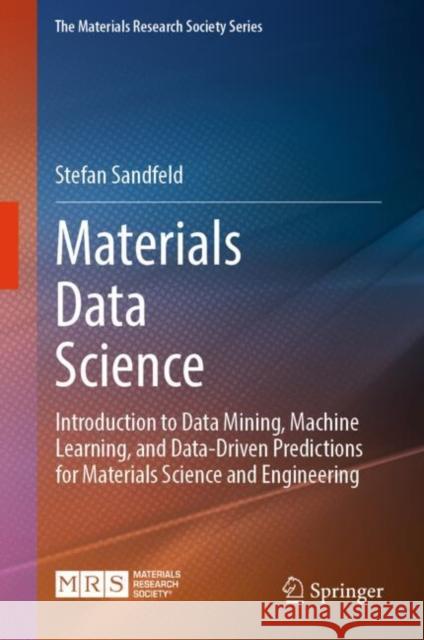Materials Data Science: Introduction to Data Mining, Machine Learning, and Data-Driven Predictions for Materials Science and Engineering » książka
topmenu
Materials Data Science: Introduction to Data Mining, Machine Learning, and Data-Driven Predictions for Materials Science and Engineering
ISBN-13: 9783031465642 / Twarda / 2024 / 607 str.
Materials Data Science: Introduction to Data Mining, Machine Learning, and Data-Driven Predictions for Materials Science and Engineering
ISBN-13: 9783031465642 / Twarda / 2024 / 607 str.
cena 350,18 zł
(netto: 333,50 VAT: 5%)
Najniższa cena z 30 dni: 346,96 zł
(netto: 333,50 VAT: 5%)
Najniższa cena z 30 dni: 346,96 zł
Termin realizacji zamówienia:
ok. 20 dni roboczych.
ok. 20 dni roboczych.
Darmowa dostawa!
Kategorie:
Kategorie BISAC:
Wydawca:
Springer International Publishing AG
Seria wydawnicza:
ISBN-13:
9783031465642
Rok wydania:
2024
Ilość stron:
607
Wymiary:
23.5 x 15.5
Oprawa:
Twarda











